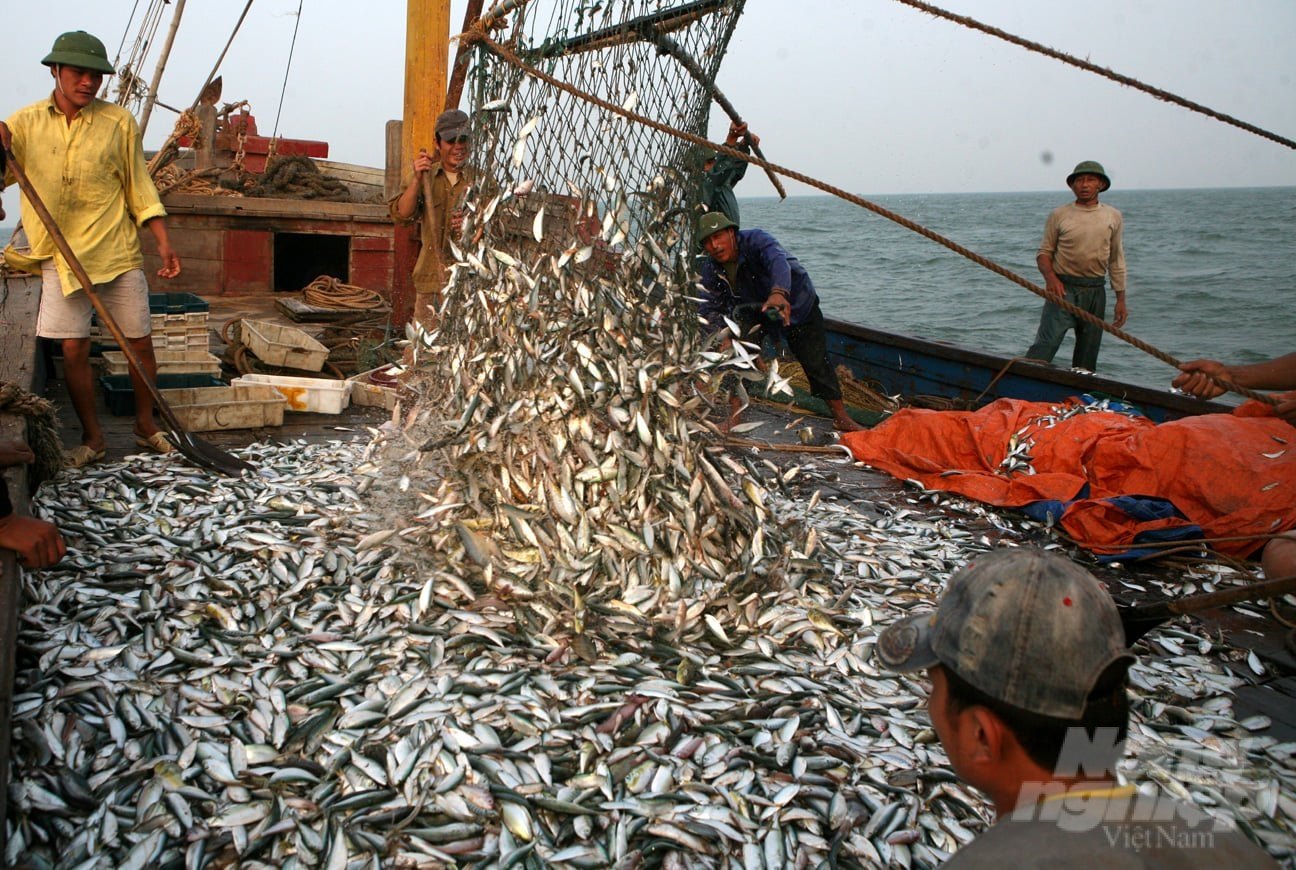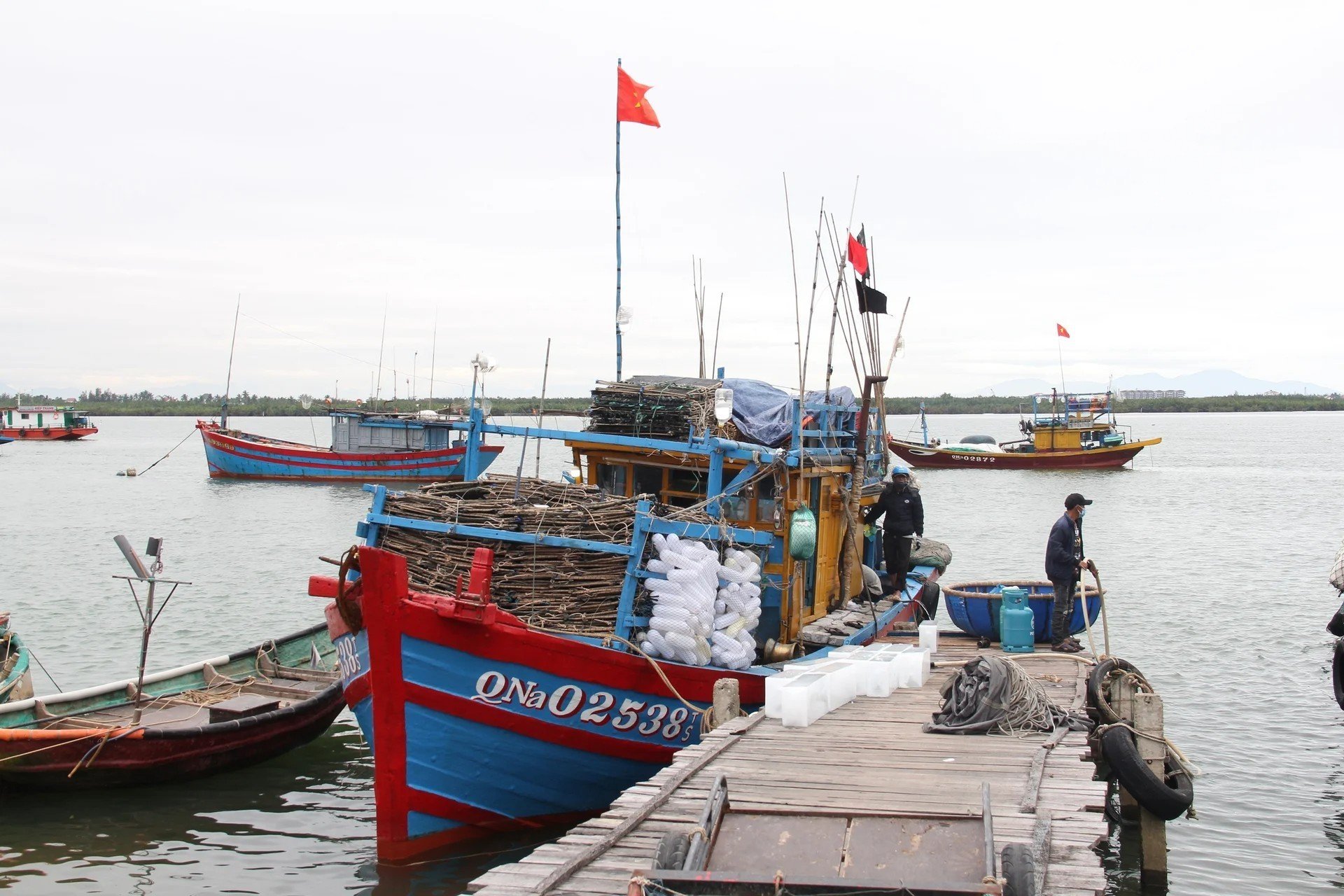May 21, 2025 | 04:05 GMT +7
May 21, 2025 | 04:05 GMT +7
Hotline: 0913.378.918
May 21, 2025 | 04:05 GMT +7
Hotline: 0913.378.918
The Ministry of Agriculture and Rural Development issued an Official Letter to the Chairman of Quang Nam Provincial People's Committee on September 26. Accordingly, the letter requested the province to implement rigorous measures to combat illegal, unreported, and unregulated (IUU) fishing. Additionally, the province has been instructed to prepare for the upcoming fourth Inspection Delegation of the European Commission (EC).
In accordance with the Prime Minister's directive on implementing anti-IUU fishing measures and in response to the "yellow card" warning from the EC, the Ministry of Agriculture and Rural Development assigned an inter-sectoral working group to collaborate with Quang Nam province on September 15 2023. The working group discussed specific points, namely:

Quang Nam province has been requested to urgently review its monitoring records for fishing vessels traveling through its port, as well as the volume of exploited aquatic product loaded and unloaded at its port. Photo: Xuan Truong.
After nearly six years of the fight against IUU fishing and three inspections by the Ministry of Agriculture and Rural Development's Working Group, there have been substantial improvements in the local implementation results concerning the installation of Vessel Monitoring System (VMS) equipment and the sanctioning of violations related to a loss of VMS connection. However, numerous shortcomings and limitations, as detailed by the Prime Minister in Decision No. 81/QD-TTg, dated February 13, 2023, remain unresolved. These obstacles can be specified as follows:
The registration of new fishing vessels has reached 57%, and the issuance of new fishing licenses has reached 81.5% with 11 offshore fishing vessels failing to be licensed. Additionally, fishing vessels under 15 meters in length have been assigned to the jurisdiction of the districts, which will require monitoring and professional guidance to ensure compliance with regulations. Furthermore, only 20% of the local fishing vessels have a valid registration.
The installation of VMS equipment has reached nearly 100% with only 1 fishing vessel remaining. However, VMS connection loss occurs frequently and commonly. Most notably, 70% of the cases involve inshore connection loss which require monitoring and supervision to ensure that disconnected fishing vessels are not in operation.
In addition, only 15% of fishing vessels traveling through ports are closely monitored. On the other hand, only 5% of the province's total volume of exploited aquatic products loading and unloading at ports has been controlled.
Despite effective punishment for the loss of VMS connection of at least ten days, a thorough review of fines and violators is necessary to ensure proper enforcement of regulations. Additionally, the comparison between the Fishing Log and VMS data has not been thoroughly implemented, which has resulted in multiple violations of Fishing Log regulations that failed to receive sanctions.
During actual inspections conducted at fishing ports, the quality of fishing logs has been found to be inadequate, with a significant 88% of the collected and submitted logs containing inaccurate catch information. Additionally, the information contained within purchase and transshipment logs fails to support the traceability of exploited aquatic products acquired from fishing vessels. This discrepancy arises from inconsistencies between the recorded purchase and transshipment times in the Purchase Log and the data retrieved from the VMS monitoring system. Furthermore, the records pertaining to fishing vessels traveling through ports, as well as those concerning inspections and the supervision of fishing vessels, do not match with the data on record.
The crucial task of verifying the origin of exploited aquatic products is executed in an inappropriate manner. The record used to monitor loading and unloading volume lacks accurate categorization by species, despite the electronic database containing relevant species composition data. This inconsistency raises concerns regarding the practical implementation and verification of these processes.
In preparation for the fourth inspection by the European Commission's Inspection Team scheduled for October 2023 and in accordance with the directives of the Prime Minister, the Ministry of Agriculture and Rural Development requested the Chairman of Quang Nam Provincial People's Committee to assumea decisive leadership role, promptly implement urgent tasks, and prioritize critical solutions.
Efforts should be maximized to promptly rectify current shortcomings and limitations. The instructions issued by the Prime Minister in Decision No. 81/QD-TTg dated February 13, 2023, and Circular No. 265/CD-TTg dated April 17, 2023, as well as those from the Head of the National Steering Committee on anti-IUU fishing in Circular No. 5312/CD-BNN-KN dated August 3, 2023, and Document No. 6168/BNN-KN dated September 6, 2023, should be strictly adhered to.
The responsibility for implementation results must be clearly assigned to individuals at all levels. Rigorous inspections should be organized to hold accountable organizations and individuals who fail to fulfill their duties and responsibilities as assigned.

The installation of VMS equipment in Quang Nam province has achieved nearly 100% coverage. However, the loss of VMS connection are common and frequent.
It is imperative to thoroughly review the vessel monitoring and control documentation system for fishing vessels traveling through port, closely monitor the volume of exploited aquatic products loaded and unloaded at the port, and issue certificates of origin for exploited aquatic products to ensure compliance with regulations.
Carry out the responsibilities diligently and complete the management of fishing vessels in accordance with regulations, including registration, inspection, issuance of fishing license, and the provision of safety and food hygiene certificates. Ensure that all fishing vessels are equipped with Vessel Monitoring System equipment and maintain up-to-date vessel data in the national fisheries database. Supervise and handle all violations related to IUU fishing, loss of VMS connection, and boundary violations at sea, as required by the law.
Maintain a comprehensive list and closely monitor all fishing vessels at high risk of IUU fishing activities, including vessels without VMS equipment, inactive vessels, unregistered vessels, or those without fishing licenses. Ensure that the current location of these vessels is monitored by local governments on a daily basis. Inspect and control 100% of fishing vessels traveling through fishing ports, and handle all cases involving fishing vessels that fail to meet the conditions for entry or exit from fishing ports. Strictly enforce penalties against local fishing vessels engaged in illegal fishing activities in foreign waters.
Improve and invest in fisheries infrastructure; strengthen resources for the local inspection and enforcement forces to ensure they have the capacity to carry out state management tasks in the designated coastal areas.
Appoint qualified and responsible officials to implement anti-IUU fishing tasks. Develop detailed plans and make necessary preparations to effectively receive the EC's Inspection Team.
Translated by Nguyen Hai Long

(VAN) Dong Thap farmers attained an average profit margin of 64% during the summer-autumn 2024 crop (first season), while An Giang and Kien Giang farmers followed with 56% and 54%, respectively.

(VAN) As a doctoral student doing research on renewable energy and electrification at Harvard University, the author shares his musings on electricity, nature, and countryside memories.

(VAN) The decree on Extended Producer Responsibility (EPR) ensures transparent management and disbursement of support funds, avoiding the creation of a “give-and-take” mechanism.

(VAN) Hue City rigorously enforces regulations regarding marine fishing and resource exploitation, with a particular emphasis on the monitoring of fishing vessels to prevent illegal, unreported, and unregulated (IUU) fishing.

(VAN) Hanoi People's Committee has issued a plan on reducing greenhouse gas emissions in the waste management sector with 2030 vision.

(VAN) Vietnam's draft amendment to Decree No. 156 proposes a mechanism for medicinal herb farming under forest canopies, linking economic development to population retention and the sustainable protection and development of forests.

(VAN) In reality, many craft village models combined with tourism in Son La have proven effective, bringing significant economic benefits to rural communities.